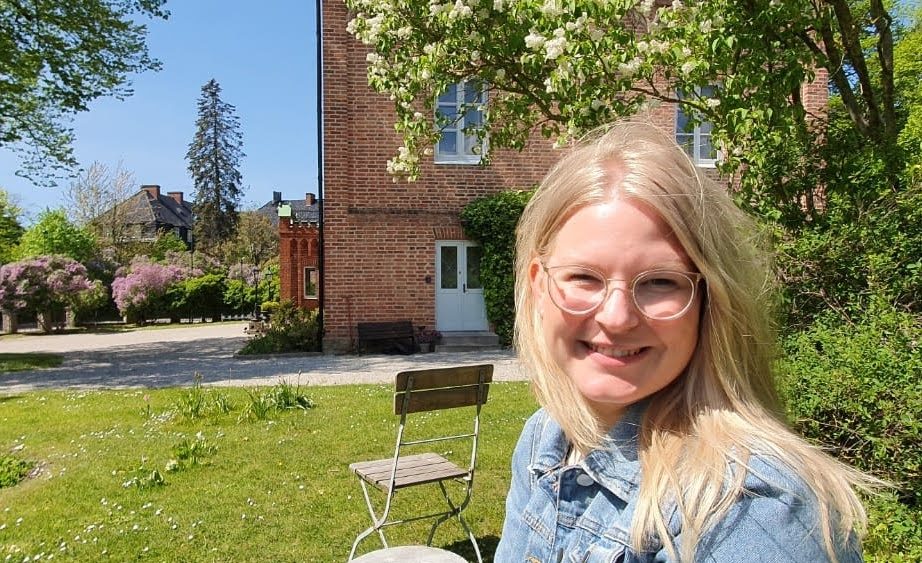Curious about psychology studies at Lund University? In this week’s alumni Q&A we talk to Madelaine Sundberg about her studies at the Psychology programme 2010-2016 and what she enjoys about her job. A job which she describes as a great mix of predictability and unexpected events.
What was the reason you chose to study the psychology programme?
At a Lund University event in AF Borgen, I went to speak with the representatives from the study programme in psychology to learn more and I was instantly intrigued. I already had a fascination for the field of psychology from before, but I was still weighing my options. After that, I read up about the profession and studies, and for many reasons I found it interesting, especially the investigative aspect and curiosity for people, combined with the strong connection between science and neurology. It felt like a broad profession with many opportunities, like being able to work within pedagogy, work/organisations, clinical work, research or even starting your own business.
What have you been up to since your graduation and what do you do today?
To obtain a license of psychology, you need one year of PTP (practical duty for psychologists) after graduation. I did my PTP at Elevhälsan in Helsingborg, where I had been an intern for a semester during my studies. After that, I had several temporary positions. I got my first job as a licensed psychologist at Elevhälsan in Landskrona. It was a very good experience to work with the same tasks, but for a different employer. This later led me to BUP (Child and Adolescent Psychiatry) in Lund, where I worked with amazing colleagues within both general psychiatry and a specialist team resolving eating disorders.
My temporary jobs gave me a chance to try out different orientations as a psychologist early on in my career and to work for different employers. From each experience I gained a lot of knowledge that helps me a lot in my current work at Capio Citykliniken, a health center in Malmö. I have worked there for about 1 1/2 years and I really enjoy it.
What does a typical work day look like?
My days as a psychologist at the health center are a great mixture of predictability and unexpected events, which makes the work environment relaxing without being boring.
The predictable being the structure of my workdays. I see patients every day and there are recurrent meetings with colleagues to discuss patients’ needs and we make sure they get the right treatment.
What I mean by the unpredictable, or unexpected events, is that I never know what patients I will meet during a day, what challenges they present to me and what I can offer to them. This means that I, as a psychologist, have to practice my ability to be present in every meeting and at the same time use relevant knowledge and dare to be creative with that. It is one of the main components of the profession, which makes it so exciting.
Have your studies at Lund University been beneficial to you?
My studies at Lund University have been a fundamental condition to even be able to work as a psychologist. The psychologist careers can differ quite a bit when it comes to, for example, what therapy orientation that is taught. At many universities, the students have to choose one therapy orientation. When I studied, we could learn about two main therapy orientations (psychodynamic therapy and cognitive behavioral therapy), which for me was a big plus. That way you get to have a feel for what suits you as a clinician and that furthermore gives you a wide competence.
Do you have a favourite memory from your time at Lund University?
Oh, it’s hard to just pick one memory. Most of the time I thought student life was very fun. During my first years at the University, I was quite active at Västgöta Nation, where I met wonderful people from other parts of the University. To hang out there, running the Metro club and being novischförman, gave me a nice break from studying. A crazy memory was to participate in Tandem. It’s an event where the Nations bike with tandem bikes, in spandex, from Gothenburg to Lund. Along the way there are nightly breaks at parking lots with DJ’s and dancing.
What advice do you have for someone who wants to become a psychologists?
You don’t have to know exactly where to go in life or what to do. Trust that things will work out themselves, because they usually do. And if they don’t – we humans tend to make it a lot better than we think we will.
It’s a good idea to start with self-care during your studies – like exercising, social events, establishing good sleeping habits and eating regularly. Then everything gets so much easier, since these are also skills you’ll need when entering work life.
And if you have the possibility as a student, take the chance to get to know people from other parts of the university world!

